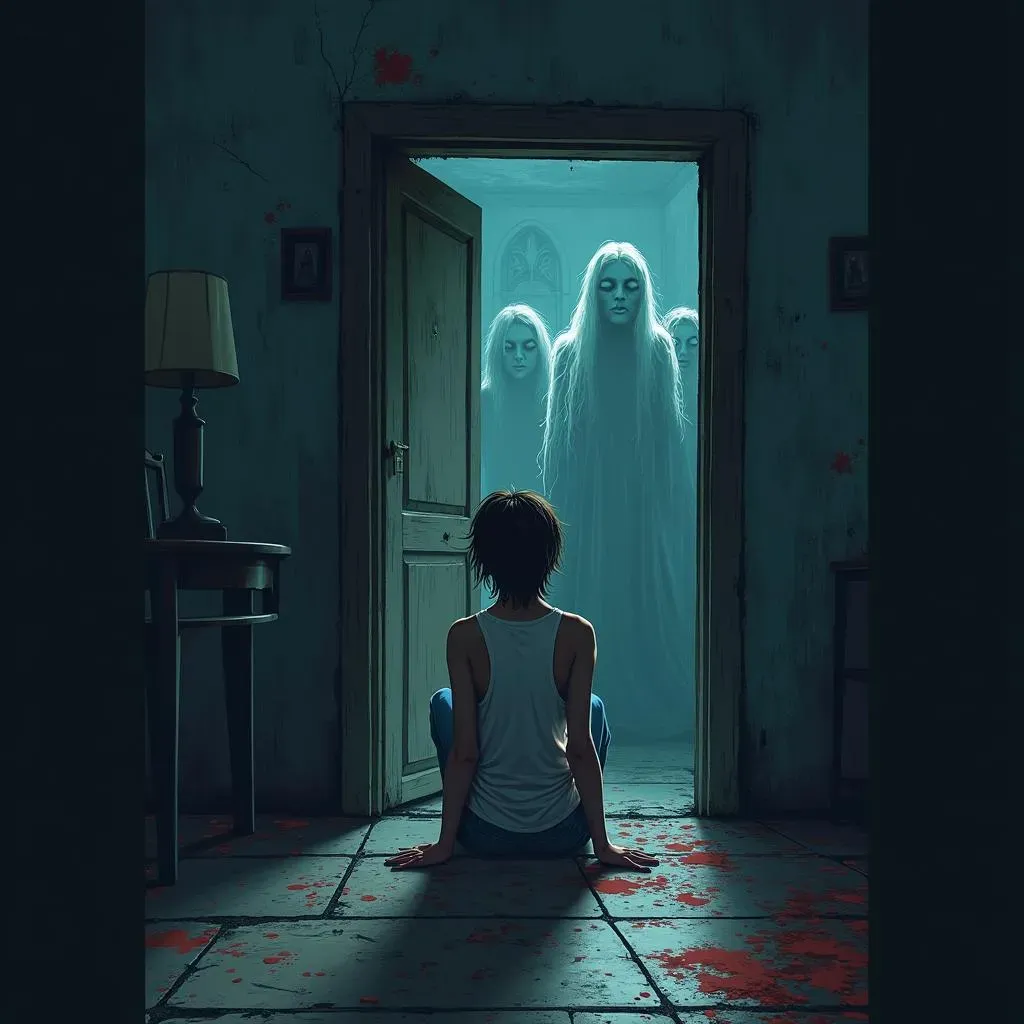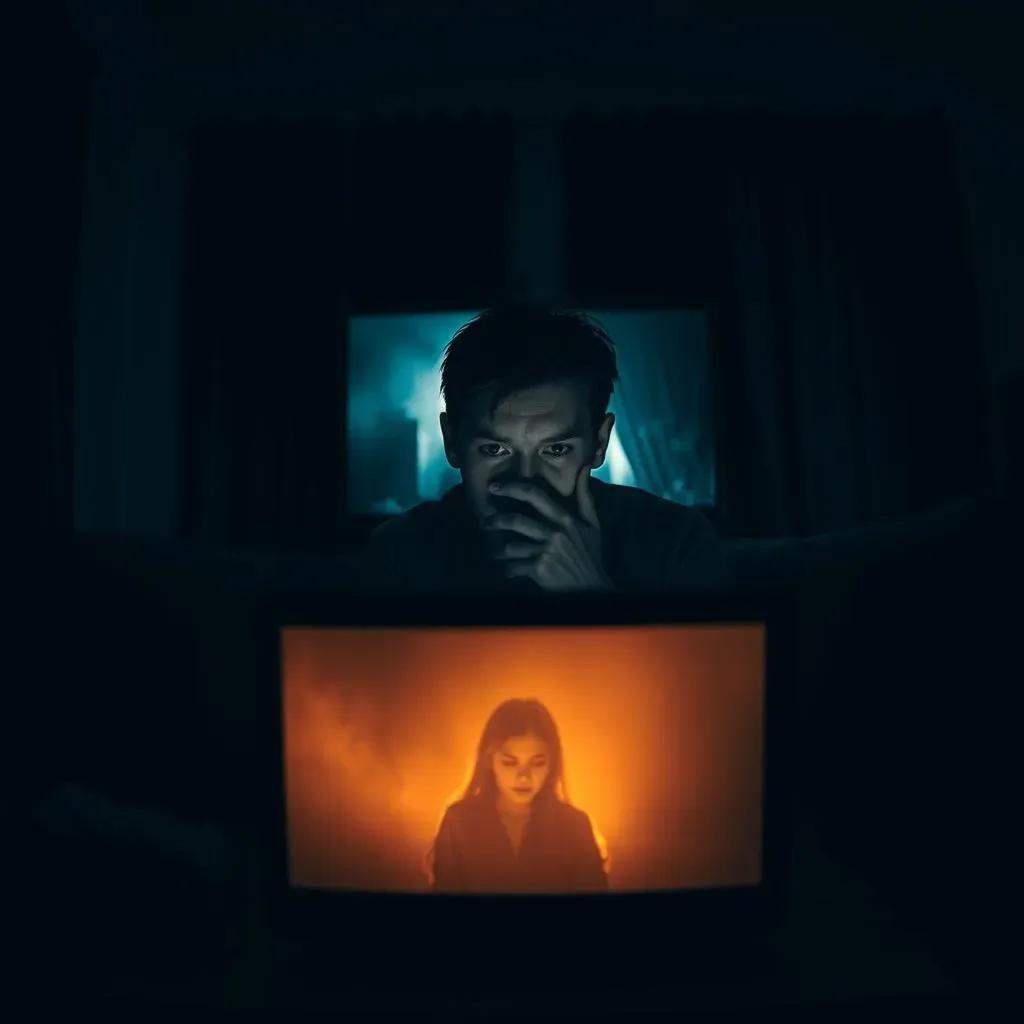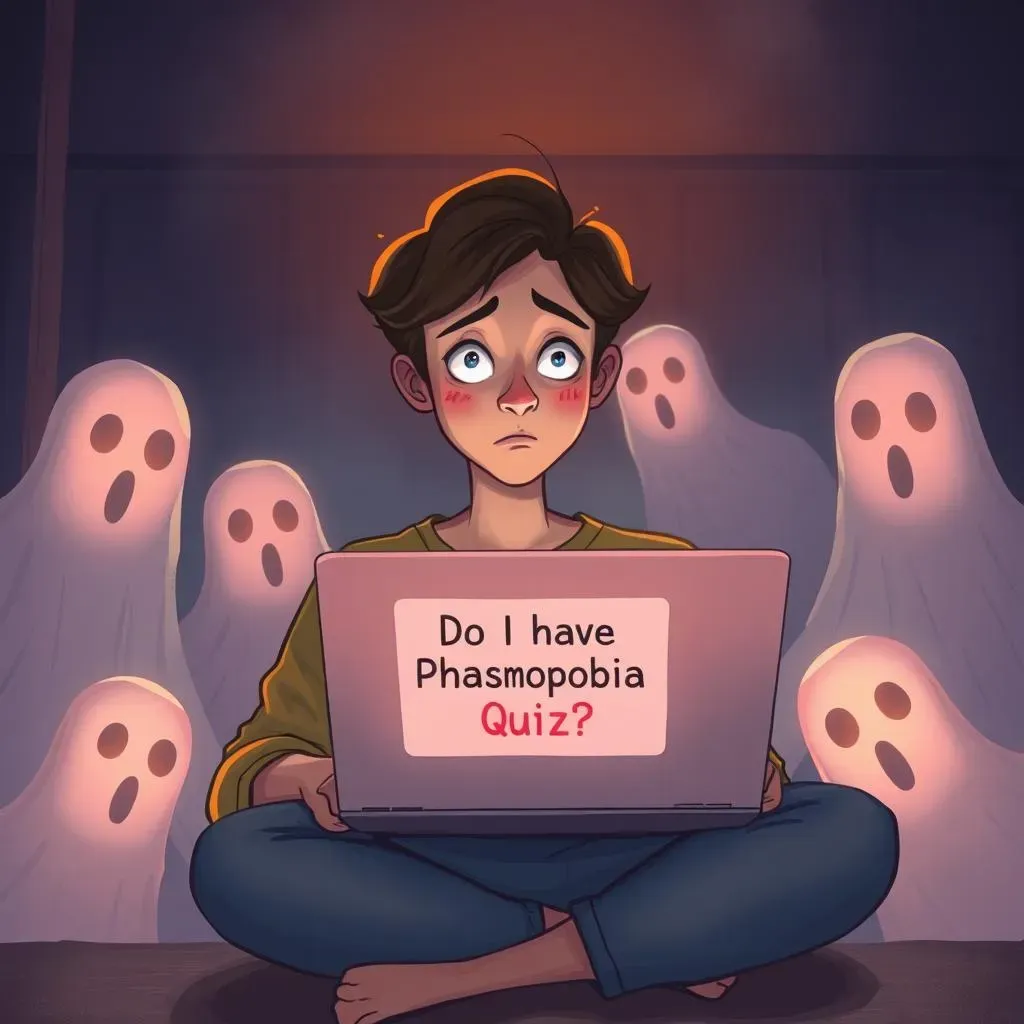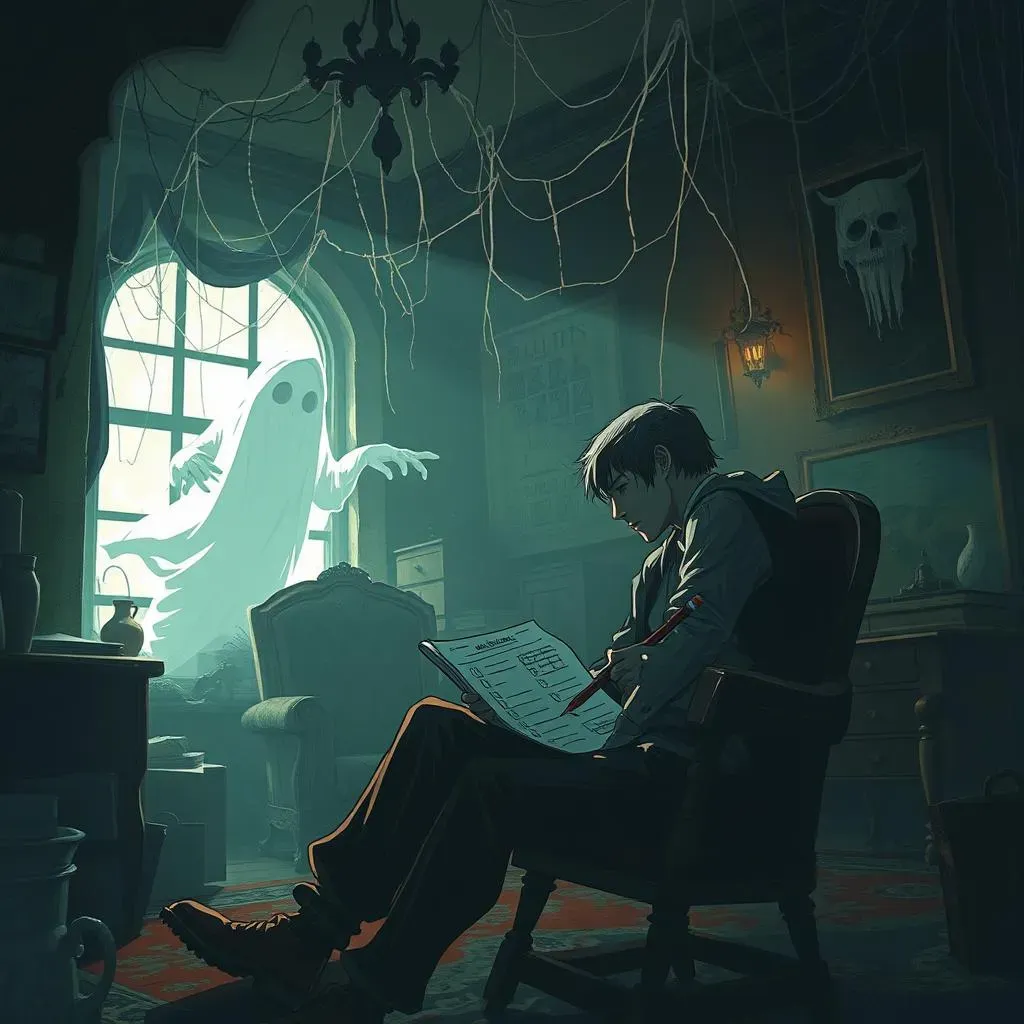Table of Contents
Ever felt a shiver down your spine at the mere thought of ghosts? Or maybe you find yourself inexplicably drawn to spooky stories and haunted houses? If so, you might be wondering, "Do I have phasmophobia?" Phasmophobia, the fear of ghosts, is a surprisingly common phobia, and understanding its symptoms can be the first step towards managing it. This article acts as your guide, offering a comprehensive exploration of phasmophobia. We'll start by defining what phasmophobia truly is, moving beyond simple definitions to paint a clearer picture of its various manifestations. Then, we'll dive into the common symptoms, helping you recognize whether they resonate with your own experiences. This isn't just about identifying a problem; it's about empowerment. Finally, we'll provide you with a "do I have phasmophobia quiz" to help you assess your own potential anxieties related to ghosts and spirits. The quiz will act as a self-assessment tool, designed to be both informative and reassuring. This interactive experience will not only provide answers but also point you toward resources and strategies for managing any anxieties you might discover. Prepare to embark on a journey of self-discovery, understanding, and ultimately, self-acceptance.
Understanding Phasmophobia: A Do I Have Phasmophobia Quiz?
Understanding Phasmophobia: A Do I Have Phasmophobia Quiz?
What is Phasmophobia?
Let's be clear: Phasmophobia isn't just about feeling a little spooked by a creaky floorboard at night. It's a specific phobia, a persistent and excessive fear of ghosts or spirits. This fear isn't a fleeting feeling; it's a significant source of anxiety that can disrupt daily life. Think about it like this: a normal person might find a scary movie mildly unsettling. Someone with phasmophobia might experience intense panic, even avoiding places they perceive as haunted.
The intensity of the fear is key. It's not simply about disliking the idea of ghosts; it's about experiencing overwhelming anxiety, potentially leading to avoidance behaviors and significant distress. This can manifest in various ways, from avoiding certain locations to experiencing physical symptoms like a racing heart or shortness of breath at the mere mention of ghosts.
Symptom | Description |
|---|---|
Avoidance | Actively avoiding places associated with ghosts (old houses, graveyards, etc.) |
Anxiety | Experiencing intense fear and worry about encountering ghosts |
Physical Symptoms | Rapid heartbeat, sweating, trembling, shortness of breath |
Differentiating Phasmophobia from Other Fears
It’s important to distinguish phasmophobia from other related fears. For instance, while some might confuse it with nyctophobia (fear of darkness), phasmophobia is specifically focused on the supernatural entities associated with darkness, not the darkness itself. Similarly, while some might share anxieties with those who have a fear of the unknown, the specificity of phasmophobia centers on the distinct fear of ghosts and spirits. It's about the *type* of fear, not just the general feeling of unease.
Many people experience a range of fears, and it’s not uncommon to have overlapping anxieties. However, phasmophobia is characterized by its singular focus on ghosts and the intense emotional and physical responses it triggers. Understanding these nuances is crucial in accurately assessing whether someone meets the criteria for this specific phobia. The next section will help you determine if your experiences align with the typical symptoms.
- Nyctophobia: Fear of darkness
- Thanatophobia: Fear of death
- Spectrophobia: Fear of ghosts or specters (often used interchangeably with phasmophobia)
Common Phasmophobia Symptoms and the Do I Have Phasmophobia Quiz
Common Phasmophobia Symptoms and the Do I Have Phasmophobia Quiz
Recognizing the Signs: Symptoms of Phasmophobia
So, you've learned what phasmophobia *is*, but how do you know if *you* have it? The symptoms can be subtle or dramatic, varying widely from person to person. Some might experience mild unease around spooky settings, while others might experience full-blown panic attacks. The key is the intensity and persistence of the fear, and how much it impacts your daily life. Think about how your heart races when you see a horror movie – is it a momentary thrill, or a prolonged, overwhelming feeling of dread that sticks with you long after the credits roll? That's the kind of distinction we're looking for.
Common symptoms can range from mild anxiety to severe panic. It's not just about avoiding haunted houses; it's about the pervasive feeling of unease that colors your perception of the world. A simple, seemingly harmless ghost story might send shivers down your spine, and this fear isn't easily dismissed. It's a deeply ingrained response that can significantly impact your quality of life. And remember, there's no shame in seeking help if your fear feels overwhelming.
- Intense Anxiety: Feeling overwhelming fear and dread at the thought or possibility of encountering ghosts.
- Avoidance Behaviors: Actively steering clear of places, movies, or discussions related to ghosts.
- Physical Symptoms: Experiencing physical manifestations of anxiety, such as rapid heartbeat, sweating, trembling, or shortness of breath.
- Sleep Disturbances: Difficulty sleeping due to intrusive thoughts about ghosts.
- Impact on Daily Life: The fear significantly interfering with daily routines, work, or social interactions.
Taking the Do I Have Phasmophobia Quiz: A Self-Assessment
Now that we've explored the common symptoms, let's move on to the self-assessment. Our "Do I Have Phasmophobia Quiz" is designed to help you gauge the severity of your fear and understand how it impacts your life. It's not a diagnostic tool, but a helpful guide for self-reflection. Remember, the goal isn't to label yourself, but to gain a better understanding of your anxieties. The quiz will ask a series of questions about your experiences with fear of ghosts and spirits, helping you identify patterns and potential triggers. Remember, honesty is key to getting a clear picture of your situation.
The quiz itself is straightforward, consisting of multiple-choice questions that are easy to understand. There are no right or wrong answers; it's simply a tool to help you understand your responses and feelings. After completing the quiz, we'll provide you with a personalized interpretation of your results. This interpretation will not only provide feedback on your potential level of phasmophobia but also offer advice and resources for managing your anxieties. This is a journey of self-discovery, and we're here to help you every step of the way.
Question Type | Example Questions |
|---|---|
Situational | "How do you feel when watching a scary movie with ghosts?" "How do you react when visiting an old, supposedly haunted building?" |
Emotional | "How intense is your fear of ghosts on a scale of 1 to 10?" "Does the thought of ghosts keep you up at night?" |
Behavioral | "Do you avoid watching ghost movies or reading ghost stories?" "Do you actively avoid places you believe to be haunted?" |
Taking the Do I Have Phasmophobia Quiz: Results and Next Steps
Taking the Do I Have Phasmophobia Quiz: Results and Next Steps
Interpreting Your Results: Understanding Your Score
Once you've completed the "Do I Have Phasmophobia Quiz," you'll receive a personalized summary of your results. This isn't a diagnosis, but a helpful snapshot of your relationship with the fear of ghosts. Your score will provide a general indication of the level of anxiety you experience related to phasmophobia, ranging from low to high. Don't be discouraged by a high score; it simply means there's an opportunity for self-understanding and potential strategies for managing your fear. Remember, seeking help is a sign of strength, not weakness.
The summary will also offer insights into the specific aspects of ghosts that trigger your anxiety. For instance, are you more afraid of specific types of ghosts (like vengeful spirits versus playful poltergeists)? Or is the fear more associated with certain situations (like being alone at night in an old house versus watching a ghost movie)? This level of detail can help you pinpoint triggers and develop personalized coping mechanisms. Understanding your specific anxieties is a key step in managing them.
- Low Score: Minimal anxiety related to ghosts.
- Medium Score: Moderate anxiety; some avoidance behaviors may be present.
- High Score: Significant anxiety; avoidance behaviors and potential impact on daily life.
Next Steps: Seeking Support and Managing Your Anxiety
Regardless of your score, remember that understanding your fear is the first step toward managing it. If your score indicates a moderate to high level of anxiety, consider exploring professional help. A therapist can provide valuable tools and techniques for managing your fear, helping you develop coping strategies and reduce the impact of phasmophobia on your life. They can also help differentiate between normal anxieties and a clinical phobia.
There are various methods that can be beneficial, including cognitive behavioral therapy (CBT), which can help challenge and reframe negative thoughts and behaviors associated with your fear. Exposure therapy, gradually exposing yourself to ghost-related stimuli in a controlled environment, can also be effective. Remember, seeking professional help isn't a sign of weakness; it's a proactive step towards improving your well-being. You're not alone in this, and there are people who can help.
Resource Type | Description | Example |
|---|---|---|
Therapist | A mental health professional specializing in anxiety disorders. | Search online for "anxiety therapist near me" |
Support Groups | Connect with others who share similar experiences. | Look for online or in-person support groups for phobias. |
Self-Help Books | Learn techniques for managing anxiety and phobias. | Search for books on CBT or exposure therapy. |
